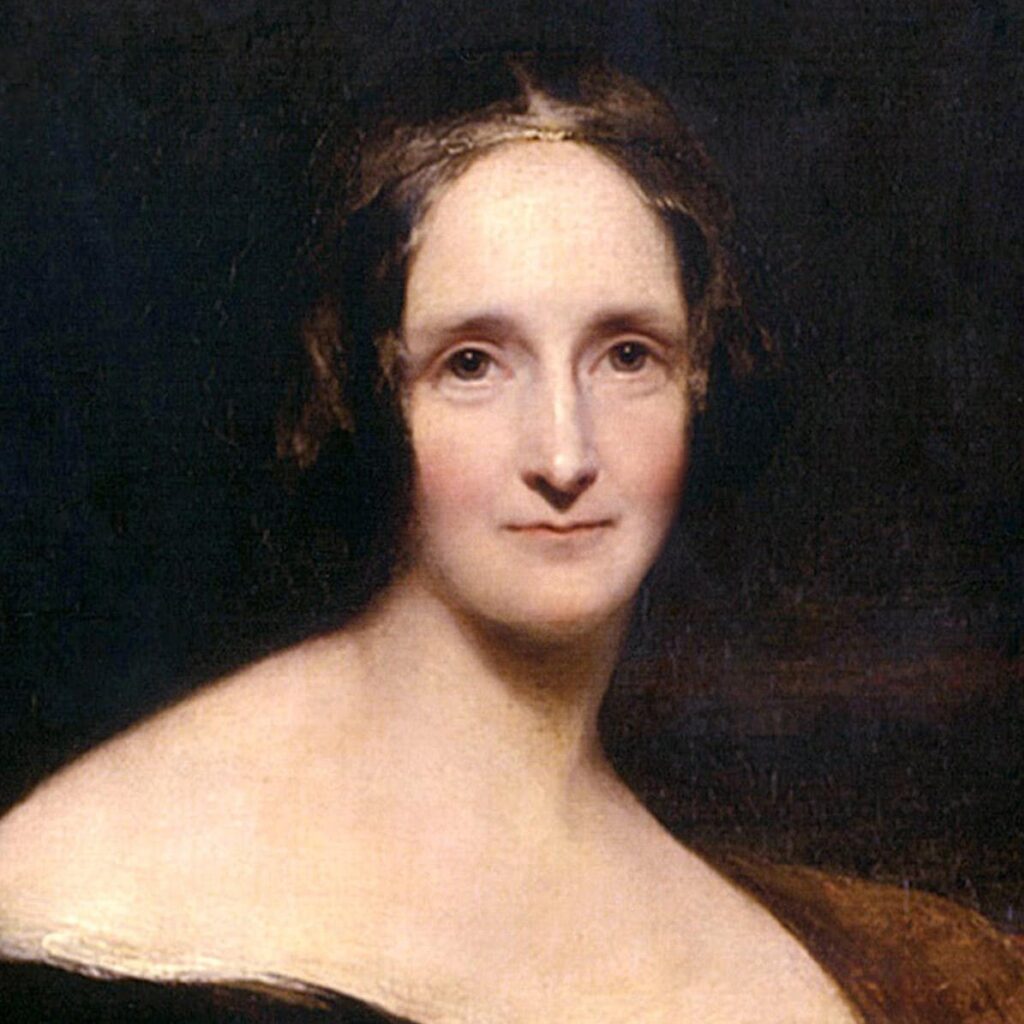Mary Shelley was born in 1797 into a family of writers. Her mother was a leading British feminist and her father was a radical philosopher. Mary’s life was accompanied by tragic events. Her mother died soon after Mary’s birth and her father was left alone with two children. Shelley was mainly raised by her stepmother, with whom she did not have a good relationship, since the stepmother was interested in her own children, and as a result, Mary did not receive maternal affection and love, she felt abandoned and unloved, later these feelings Mary reflected in her novel Frankenstein. In her early years, when Mary Shelley was 16, she fell in love with the married poet Percy Shelley and fled with him to France, where she soon experienced unsuccessful motherhood – the death of her newborn daughter, and later she lost her son. Shelley’s failed mothering experience also is placed in her novel Frankenstein in the context when the monster was created by Victor. Undoubtedly, a series of family tragedies in Shelley’s life influenced her writing works.
The Last Man novel is also the result of another tragedy in Mary Shelley’s life when her husband drowned. As Anne K. Mellor states, Mary Shelley wrote the novel “to present idealized portraits of Percy Shelley, first and most tellingly as Adrian in The Last Man”. The biography of Mary Shelley written by Anne K. Mellor emphasizes that mostly Shelley’s works concerned with the failed family relationships, The Adventures of Perkin Warbeck; Lodore; Falkner. In these novels she continued to explore the themes that had long obsessed her, relationships between fathers and daughters, and dependence on their fathers. It is interesting and at the same time sad to realize that the tragic events in Mary Shelley’s life are in fact the emotional pain that she expressed through her novels.
Sources:
Anne K. Mellor, British Writers, Supplement 3, Charles Scribner’s Sons, 1996
Luca Prono, Encyclopedia of Motherhood (Vol. 3. ), Sage Publications, Inc., 2010




